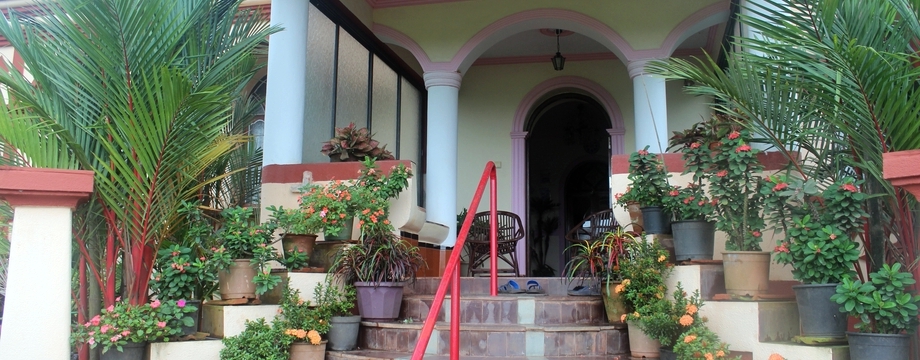Idioms & Phrases
Disachea disa
Disachea disa, ratichê rati, sumanachea sumana or satolleachea satollea, mhoineachea mhoinea, and vorsachea vorsaare similarly constructed phrases respectively meaning day after day, night after night, week after week, month after month and year after year. To examine the peculiar type of construction, let’s just take the first phrase: day after day. The word for day is … Continue reading
Borem mhunn borem
Borem mhunn borem literally means “good, therefore good” or, in slightly better English, “It’s good, so it’s good”. Borem is neuter singular of boro (masc), bori (fem), and both the occurrences of the word in the phrase always remain unchanged regardless of the context in which the phrase may be used. That is because borem refers to an impersonal situation which is … Continue reading
Hispa bhair
Languages have their peculiarities, and it may not always be easy or even possible to translate a phrase or sentence from one language to another with complete accuracy. At times it is a question of economy of words. We have earlier mentioned the present habitual tense which is embedded so seamlessly in Konkani grammar (Please refer to … Continue reading
Ghor-zanvuy
Ghor-zanvuy is the lucky man who for whatever reason inherits his parents-in-law’s house and property and parks himself therein. It’s quite a common practice in Goa, particularly when the wife has no brother who can be an heir to the family assets. Most often it is because his wife is the only child of her parents. … Continue reading
Kalchi Koddi
Kalchi koddi used to be a very common phrase in the days gone by. Today it may not only sound stale but it may even be considered to represent something stale. Who would opt for yesterdays curry, after all? But such wasn’t the case in those days. Kalchi koddi owes its origin to the fact … Continue reading
Hat pãy zhorounk
Hat-pãy zhorounk literally means to rub away or wear out one’s hands and feet. The phrase is used to portray the dedicated hard work and intense labour one may have to go through for a relatively long period of time in order to further a particular cause like bringing up children or building up an organization. The word zhorounk brings … Continue reading
Mhojea patkacho khuris
“Mhojea patkacho khuris” literally means, “The cross of my sin (singular)”, i.e., “the punishment for my sins”. It is generally used to describe a person, and usually a close family member, who is a source of one’s suffering. As you can see, it is generally and most appropriately (and sometimes even affectionately!) used in the first … Continue reading
Bhitorlê budicho
Bhitorlê budicho strictly means: of inner mind. The word bud has several meanings: it can stand for mind, advice, wisdom, and even lesson. It is equivalent to sly and hence is a pejorative phrase. The word bhitorlê takes a feminine ending because the word bud is feminine, but it is an adjectival phrase, and so … Continue reading
Fetyêk mharog
This phrase has its origin in jewellery. Gold, for example, is expensive enough. But the quality of the design adds to the cost, mainly due to the goldsmith’s labour involved. The phrase is used when the material is relatively cheap but the cost of the finished product grows out of proportion to the cost of the material. … Continue reading
Umtea Kollxar Udok
Umtea kollxar udok literally means “water on a large upside-down water pot. The equivalent English metaphor, “water off a duck’s back”, is therefore almost a literal translation of the Konkani one, except that as the water is poured from above, the umto kollso below is replaced by the duck. Yet the Konkani metaphor is perhaps more thorough in its representation in … Continue reading


